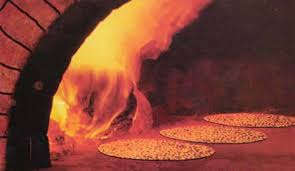
What is Shmura Matza?
by Rabbi Eliezer Kwass
The matza we are commanded to eat on the Seder night must be more than just unleavened bread. The Torah’s commands us (Shemot 12:17) to, “Watch the matzot,” (“Ushemartem et hamatzot”), requiring some input beyond just checking that the dough has not leavened. What does this extra requirement entail?
Two Types of Shmira
First, matza must be specially protected from leavening (shmira meichametz). Ideally from the moment the wheat is harvested, care should be taken that it does not come in contact with water. The standard requirement of “shmira” entails watching it at least from the time it is ground into flour. However, rules the Shulchan Arukh, in extreme situations, one can “buy flour from the market place” as long as he specially watches it while it is being kneaded and baked.
There is a second aspect to “watching the matzot” besides special protection from leavening. The matza must also be made “for the sake of the mitzva of matza” (shmira lesheim mitzvat matza). The matza bakers actually declare this before beginning work to solidify their intention.
The basis for this in the Talmud is a passage concerning using sacrificial matzot for the seder night. There were a number of grain offerings brought in the Beit Hamikdash that included unleavened bread. The Korban Todah, a thanksgiving offering, included both leavened and unleavened bread. The Mishna tells us that a piece of unleavened bread made originally for a Korban Todah cannot be used to fulfill the mitzva of eating matza on the first night of Pesach. Rava claims that the source in the Torah for this rule is the verse commanding to, “Watch the matzot.” They are to be watched specifically for the purpose of the mitzva of matza and not for any other reason. They are to be made “for the sake of the mitzva of matza.”
There are, then, two aspects to “shmura matza.” It must be specially protected from leavening – ideally from the time of harvesting, at least from the time it is ground into flour, and, the most basic level, when it is kneaded and baked – and it must be made for the sake of the mitzva of matza.
